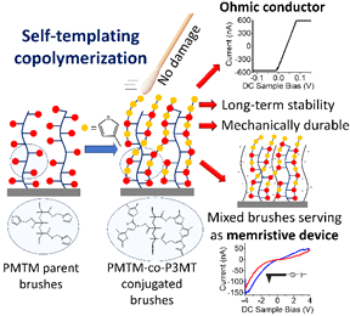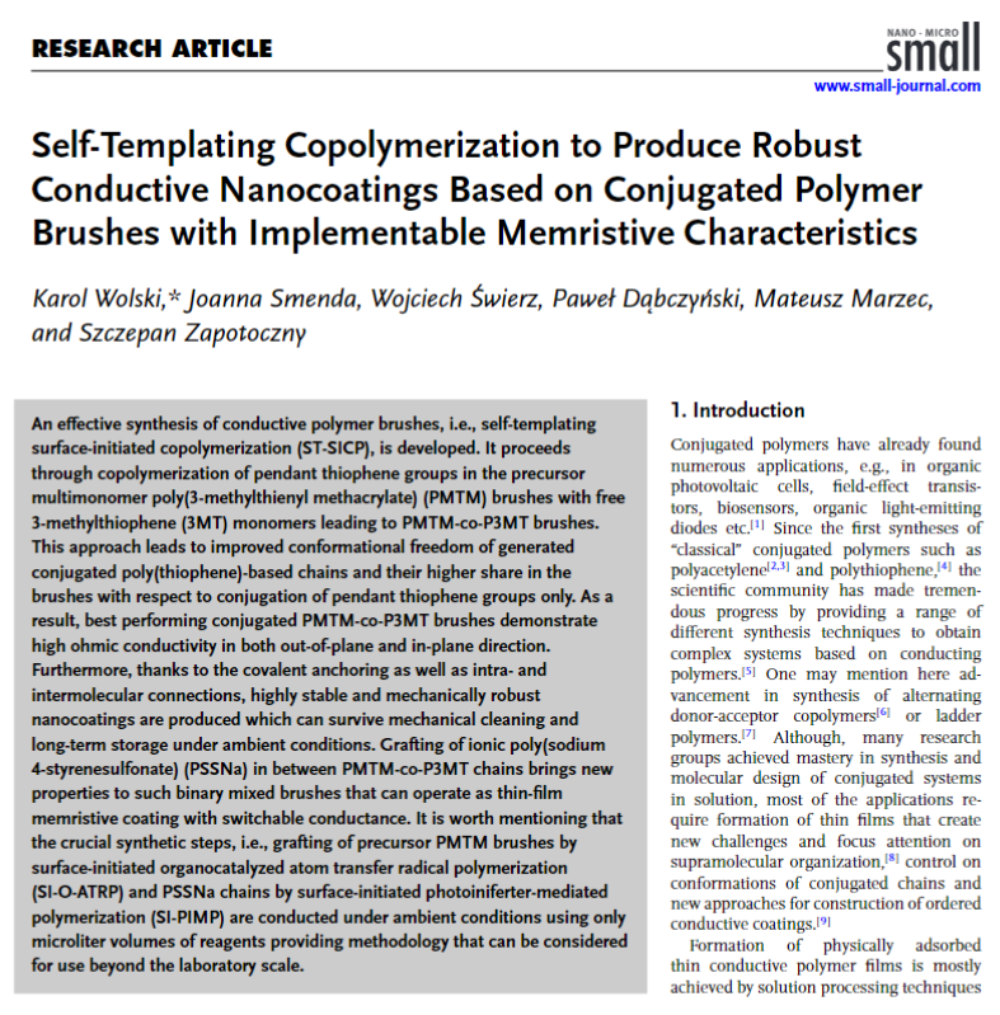
Small has published a paper entitled „Self-Templating Copolymerization to Produce Robust Conductive Nanocoatings Based on Conjugated Polymer Brushes with Implementable Memristive Characteristics”, which is a result of Dr. Karol Wolski’s SONATA 14 scientific grant (2018/31/D/ST5/00868). The research presented in the paper results from cooperation of members of Nanotechnology of Polymers and Biomaterials Group: Dr. Karol Wolski, Joanna Smenda (MSc), Wojciech Świerz (MSc), Professor Szczepan Zapotoczny with Dr. Paweł Dąbczyński from the JU Faculty of Physics, Astronomy and Applied Computer Science and also Dr. Mateusz Marzec from Academic Centre for Materials and Nanotechnology AGH.
The paper presents an effective synthesis of conductive polymer brushes, which is based on copolymerization of pendant thiophene groups in the precursor multimonomer poly(3-methylthienyl methacrylate) (PMTM) brushes with free 3-methylthiophene (3MT) monomers. The coverage obtained exhibits high conductivity, which can be adjusted over several orders of magnitude by changing the thickness of the precursor brushes, the concentration of 3-methylthiophene, and the concentration and type of dopant. The resulting layers demonstrate significantly greater conductivity stability under ambient conditions than classical polythiophene-based polymer films, which degrade quickly in air. Thanks to the covalent anchoring of the polymer chains to the surface and the intra- and intermolecular connections within the brushes, highly stable and mechanically robust nanocoatings of 30-70 nm thickness are produced that can be cleaned mechanically. Those unique features, exceptionally rarely presented in thin conducting films, allow the fabrication of obtained materials in highly stable and recyclable organic electrodes.
The introduced methodology was also applied for the fabrication of mixed polymer brushes (MPBs) based on conjugated polythiophene and polyanionic poly(sodium 4-styrene sulfonate) (PSSNa) chains. It was shown that with a sufficiently high content of PSSNa in MPBs, thin organic films demonstrating memristive properties may be obtained. The ohmic conductivity of those films can be switched by applied current pulses. The most important stages of the synthesis of conductive brushes and mixed brushes were carried out under room conditions and in a simplified reaction system, which potentially creates opportunities to increase the scale of production of these unique polymer films.
Congratulations to the Authors!
According to the list of scientific journals and peer-reviewed materials of international conferences of the Ministry of Education and Science, the number of points assigned to Small is 200 (Impact Factor = 13.3)


